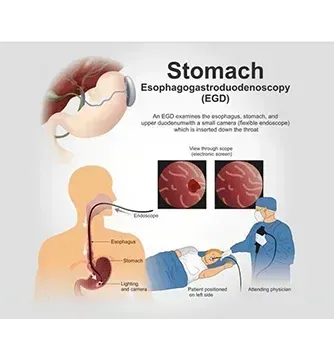A nurse is assisting with the care of a client following electroconvulsive therapy for the treatment of a depressive disorder. Which of the following findings should the nurse expect 15 min following the procedure?
Sleep apnea
Disorientation
Tonic-clonic seizures
Paresthesias
The Correct Answer is B
Disorientation is a common side effect of ECT and is typically temporary. It may include confusion and difficulty recalling recent events or personal information. This post-treatment disorientation is often referred to as the "postictal state" and usually resolves within a short period of time.
Sleep apnea, tonic-clonic seizures, and paresthesias are not expected findings following ECT and would require immediate attention and intervention if they were to occur. It is important for the nurse to closely monitor the client's vital signs, oxygen saturation levels, and neurological status after the procedure to ensure their safety and well-being.
Nursing Test Bank
Naxlex Comprehensive Predictor Exams
Related Questions
Correct Answer is B
Explanation
Before any invasive procedure, it is essential to ensure that the client has given informed consent. Informed consent involves providing the client with detailed information about the procedure, its risks and benefits, and alternatives. The client should have the opportunity to ask questions and fully understand the procedure before giving consent.
Oral contrast solutions are typically used for imaging procedures such as CT scans or X-rays, not for esophagogastroduodenoscopy. This procedure involves the insertion of a flexible tube with a camera into the esophagus, stomach, and duodenum to visualize the upper gastrointestinal tract.
While it is important to provide the client with information about the duration of the procedure, stating a specific time frame may not be accurate or helpful. The duration of an esophagogastroduodenoscopy can vary depending on factors such as the complexity of the procedure and the client's individual circumstances.
Having a full bladder is not necessary for an esophagogastroduodenoscopy procedure. This requirement may be relevant for other procedures, such as pelvic ultrasound, but it is not applicable in this case.

Correct Answer is B
Explanation
Herpes simplex is a viral infection that causes skin eruptions or lesions. To promote healing and prevent secondary infections, it is important to keep the affected area clean. Cleansing the skin eruptions with povidone-iodine, an antiseptic solution, can help reduce the risk of infection and promote healing.

The other options are incorrect:
Over-the-counter topical ointments are generally not recommended for the treatment of herpes simplex outbreaks. It is best to consult with a healthcare provider for appropriate medication and treatment options.
Herpes simplex is a viral infection, and antibiotics are used to treat bacterial infections. Antibiotics are not effective against viral infections like herpes simplex.
Placing disposable thermometers in the client's room is not directly related to the management of a herpes simplex outbreak. It is important to focus on interventions specific to the client's condition.
Whether you are a student looking to ace your exams or a practicing nurse seeking to enhance your expertise , our nursing education contents will empower you with the confidence and competence to make a difference in the lives of patients and become a respected leader in the healthcare field.
Visit Naxlex, invest in your future and unlock endless possibilities with our unparalleled nursing education contents today
Report Wrong Answer on the Current Question
Do you disagree with the answer? If yes, what is your expected answer? Explain.
Kindly be descriptive with the issue you are facing.
